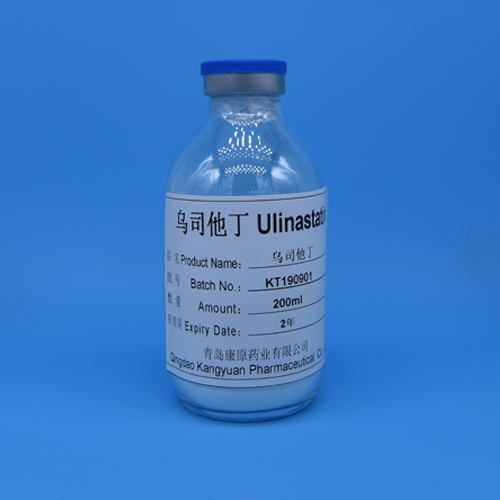1. Inhibitory effect of enzyme can effectively inhibit the activities of
trypsin, -chymotrypsin, granulocyte elastase and cathepsin, and remove the
damage caused by hydrolase in blood to tissue cells;
2. Anti-inflammatory effects inhibit the release of inflammatory cytokines
and lysosomal enzymes, stabilize the cell membranes of monocytes and
neutrophils, and reduce the release of inflammatory mediators;

3. Improving microcirculation and tissue perfusion inhibits the generation
of myocardial inhibitory factors, reduces the generation of kinidin, stabilizes
lysosomal membrane, and improves metabolic abnormalities.
Ulinastatin is different from the therapeutic drugs that antagonizes one or
several cytokines, and does not bring side effects such as immune suppression,
stress ulcer bleeding and osteoporosis like glucocorticoids. As an in vivo
anti-inflammatory complementary therapy, ulinastatin is positively correlated
with the severity of the disease and the dose to be supplemented. SIRS are
regulated by a complex signal network, and single drugs antagonizing a certain
cytokine are ineffective. Clinical practice has shown that ulinastatin
supplementation with SIRS in vitro successfully blocks and interferes the
development of SIRS by inhibiting the inflammatory reactivation-related
hydrolases and the over-activation of inflammatory cells! At present,
ulinastatin is widely used in the treatment of SAP, CARDIopulmonary
resuscitation, severe multiple injuries, compound injuries, burns, sepsis, shock
and other critically ill patients.
That's all about ulinastatin. Stay tuned for more.